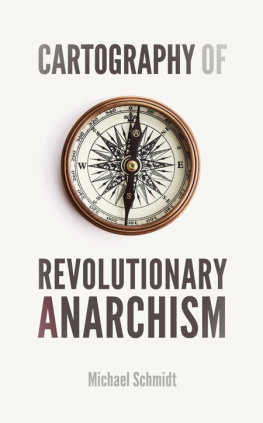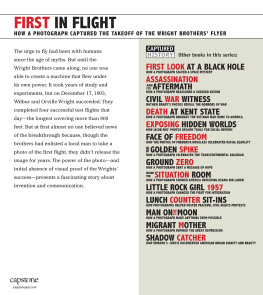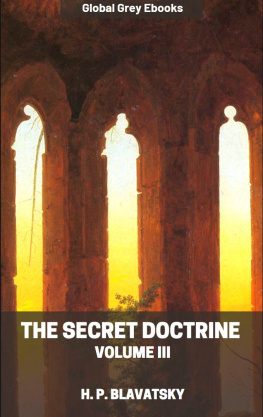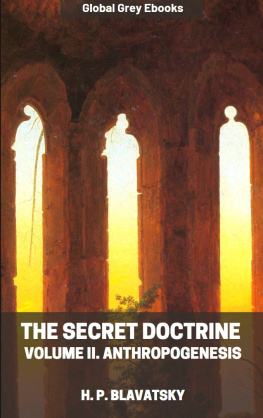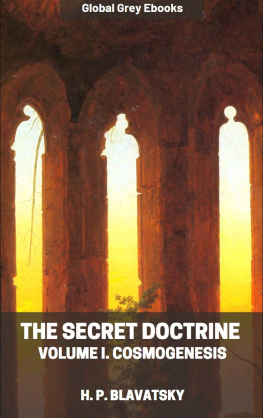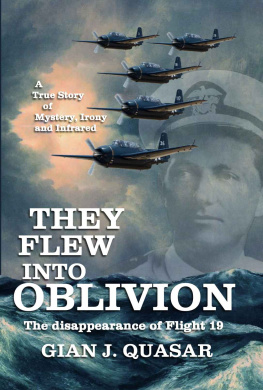Michael Schmidt - Death Flight: Apartheids Secret Doctrine of Disappearance
Here you can read online Michael Schmidt - Death Flight: Apartheids Secret Doctrine of Disappearance full text of the book (entire story) in english for free. Download pdf and epub, get meaning, cover and reviews about this ebook. year: 2020, genre: Detective and thriller. Description of the work, (preface) as well as reviews are available. Best literature library LitArk.com created for fans of good reading and offers a wide selection of genres:
Romance novel
Science fiction
Adventure
Detective
Science
History
Home and family
Prose
Art
Politics
Computer
Non-fiction
Religion
Business
Children
Humor
Choose a favorite category and find really read worthwhile books. Enjoy immersion in the world of imagination, feel the emotions of the characters or learn something new for yourself, make an fascinating discovery.
- Book:Death Flight: Apartheids Secret Doctrine of Disappearance
- Author:
- Genre:
- Year:2020
- Rating:4 / 5
- Favourites:Add to favourites
- Your mark:
- 80
- 1
- 2
- 3
- 4
- 5
Death Flight: Apartheids Secret Doctrine of Disappearance: summary, description and annotation
We offer to read an annotation, description, summary or preface (depends on what the author of the book "Death Flight: Apartheids Secret Doctrine of Disappearance" wrote himself). If you haven't found the necessary information about the book — write in the comments, we will try to find it.
Michael Schmidt: author's other books
Who wrote Death Flight: Apartheids Secret Doctrine of Disappearance? Find out the surname, the name of the author of the book and a list of all author's works by series.
Death Flight: Apartheids Secret Doctrine of Disappearance — read online for free the complete book (whole text) full work
Below is the text of the book, divided by pages. System saving the place of the last page read, allows you to conveniently read the book "Death Flight: Apartheids Secret Doctrine of Disappearance" online for free, without having to search again every time where you left off. Put a bookmark, and you can go to the page where you finished reading at any time.
Font size:
Interval:
Bookmark:


Michael Schmidt
DEATH
FLIGHT
Apartheids secret doctrine of disappearance
TAFELBERG
To the families of the hundreds
of men and one woman
who were disappeared
under Operation Dual
from 12 July 1979 to 12 December 1987
Style Note: Translations from the original French, Afrikaans, Portuguese, or other language sources are by the author. I have attempted to accurately reflect characters correct ranks at the relevant periods under discussion and to indicate where these changed as they were promoted; I have, however, continued using the ranks of pseudo-operators after they went civilian so as to indicate their hierarchy. Lastly, contemporary geographic names are used throughout. For example, South West Africa and Rhodesia only become Namibia and Zimbabwe, respectively, after independence. This may conflict with current Namibian and Zimbabwean sensibilities but is historically accurate. The airfield codes in South West Africa (which all changed on independence) are cited as per the pilots logbooks.
ANCAfrican National Congress
AZAPOAzanian Peoples Organisation
BOSSBureau of State Security
BSAPBritish South Africa Police
CBWchemical and biological warfare
CCBCivil Cooperation Bureau
CIACentral Intelligence Agency
CICCoordinating Intelligence Committee
CIOCentral Intelligence Organisation
ConCourtConstitutional Court
CSIChief of Staff Intelligence
D40Delta 40
DSTDirectorate of Special Tasks
EMLCElektroniese, Meganiese, Landboukundige en Chemiese Ingenieursvaardighede
EOExecutive Outcomes
FAFforward airfields
FAPLAPeoples Armed Forces of Liberation of Angola
FBIFederal Bureau of Investigation
FNLANational Front for the Liberation of Angola
FPLMPeoples Forces of Liberation of Mozambique
FRELIMOMozambique Liberation Front
IFPInkatha Freedom Party
IWBIrregular Warfare Branch
JMCsJoint Management Centres
KIKCo-ordinating Intelligence Committee
MIMilitary Intelligence
MKuMkhonto we Sizwe
MPLAPeoples Movement for the Liberation of Angola
NISNational Intelligence Service
NPANational Prosecuting Authority
NSMSNational Security Management System
PACPan Africanist Congress
PCLUPriority Crimes Litigation Unit
PLANPeoples Liberation Army of Namibia
RARRhodesian African Rifles
RENAMOMozambican National Resistance
RLIRhodesian Light Infantry
SAAFSouth African Air Force
SACPSouth African Communist Party
SADFSouth African Defence Force
SANDFSouth African National Defence Force
SAPSouth African Police
SASSpecial Air Service
SBSpecial Branch
SFSpecial Forces
SPOSection of Pseudo-Operations
SSCState Security Council
SWAPOSouth West African Peoples Organisation
SWAPOLSouth West African Police
SWATFSouth West Africa Territorial Force
TRCTruth and Reconciliation Commission
TREWITSTeen-Rewolusionre Inligtingstaakspan
UANCUnited African National Council
UDFUnited Democratic Front
UNUnited Nations
UNITANational Union for the Total Independence of Angola
USUnited States
ZANLAZimbabwe African National Liberation Army
ZANUZimbabwean African National Union
ZAPUZimbabwe African Peoples Union
ZCIOZimbabwean Central Intelligence Organisation
ZIPRAZimbabwe Peoples Revolutionary Army
ZSOUimbabwe Special Operations Unit
This book will make your stomach turn. Do not avert your eyes.
Our efforts to understand and document exactly how wide the footprint of apartheids atrocities stretched, how far its violence travelled within and beyond our borders, have not gone far enough. Death Flight shines a much-needed light on some of the darkest corners of a regime waging a desperate and dirty fight against the inevitable. It is the first detailed exploration of the horrendous practice of flinging murdered prisoners into the depths of the Atlantic Ocean.
By following the thread of apartheids violence into Namibia, Mozambique, Zimbabwe, Lesotho, Angola, Swaziland, and Zambia, Death Flight elucidates the transnational nature of this crime against humanity. In so doing, it raises fascinating questions about the role of international law in the attainment of hitherto evasive justice.
The general callousness with which apartheids henchmen treated human life is an assault on ones senses. In the process, the book demolishes the supremacist argument central to apartheid, that at its core lay a desire to bring enlightenment to a backward people.
I found it disturbing that most of the death flight victims in the book could not be identified because the interviewees chose not to remember details. It is unimaginable that a system ostensibly operating on the basis of security intelligence would have disposed of people without knowledge of the risk (real or imagined) that they presented and, most importantly, without knowing their identities the basic construct of the world of intelligence.
One hopes that the names that did make it into the book will bring some closure to many a family who, to date, may have had little idea of what happened to their beloved.
And for those whose identities remain unverified, one hopes that, by turning the light on this hitherto concealed class of victims, Death Flight will invite further scholarship and activism probing this issue. It appears that this important task escaped even the TRC.
Adding to the contemporary relevance of the book is the disturbing revelation of a covert, post-TRC process of exemption for perpetrators, as well as an inexplicable (if not unconstitutional) change to the policy of the National Prosecuting Authority. One hopes that this may provide impetus for the wheels of justice to once again start turning.
This part of the book resonates with the recent progressive judgment handed down in the Ahmed Timol matter by Judge Billy Mothle. The case has re-energised the efforts of many families in South Africa seeking justice for the unresolved political killings of their loved ones. The court proceedings, aimed at ensuring that Joo Rodrigues is held accountable for the murder of Timol, have exposed the conniving role played by some structures of the democratic government in protecting the perpetrators of apartheid.
The recent denial by former president FW de Klerk that apartheid was a crime against humanity triggered an outcry and a national debate about our past. The contents of this book make an irrefutable case confirming the commission in the most brutal of ways of such a crime. Furthermore, it raises serious questions about the role of members of the State Security Council, which at one stage included De Klerk himself, along with a broad network of other senior members of government.
Death Flight is a daring mission to salvage the ghosts of those who were thought to have been eternally dissolved, by apartheid Special Forces, deep in the oceanic waters off our shores. It is destined to become an invaluable tool, connecting the dots in the quest to ensure that no victim of the deadly hand of apartheid is left unaccounted for.
Nkosinathi Biko
May 2020
In early May 1947, a group of six to eight villagers were herded onto a French military plane in eastern Madagascar. The captured men were about to become unwilling participants in a crude and cruel display of power by the colonial forces.
Font size:
Interval:
Bookmark:
Similar books «Death Flight: Apartheids Secret Doctrine of Disappearance»
Look at similar books to Death Flight: Apartheids Secret Doctrine of Disappearance. We have selected literature similar in name and meaning in the hope of providing readers with more options to find new, interesting, not yet read works.
Discussion, reviews of the book Death Flight: Apartheids Secret Doctrine of Disappearance and just readers' own opinions. Leave your comments, write what you think about the work, its meaning or the main characters. Specify what exactly you liked and what you didn't like, and why you think so.





